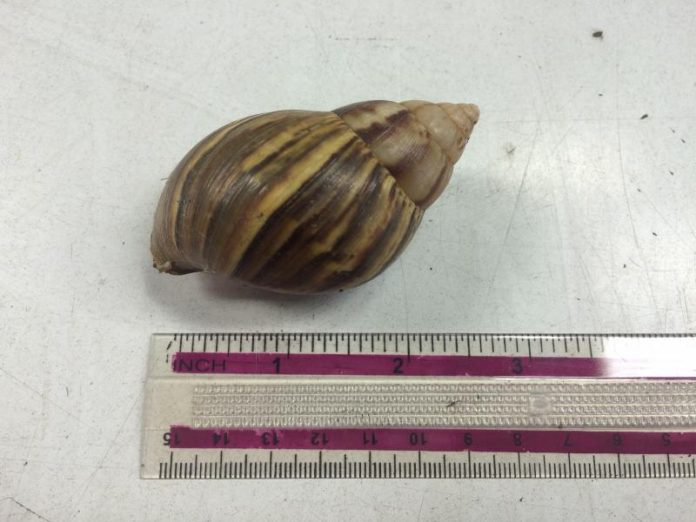
SAN FRANCISCO — U. S. Customs and Border Protection Agriculture Specialists working at the Port of Oakland discovered two live Giant African Snails along with a pile of dead snail eggs in early December while examining a cargo shipment of wooden pallets from American Samoa.
The specimens were collected and forwarded to the U.S. Department of Agriculture Plant Inspection Station, and digital images were sent to the USDA Systematic Entomology Laboratory for positive identification. USDA made the final identification as Lissachatina fulica (Bowditch), commonly known as the Giant African Snail. Scientists consider this mollusk one of the most damaging snails in the world.
“CBP is on the frontline 24/7 searching for anything crossing our borders that could potentially harm our citizens,” said Brian J. Humphrey, director of field operations in San Francisco. “Giant African Snails are a serious agriculture and human health threat, since they consume such a wide variety of plants and can carry diseases.”
This is the second interception of this pest at the Port of Oakland in two straight months. In November, CBP discovered a Giant African Snail in a shipping container of commercial goods from Asia.
According to USDA, Giant African Snails can grow up to 8 inches long, can consume at least 500 different of types of plants, and can cause structural damage by eating paint, plaster, and stucco in houses. They are also carriers of various plant and human pathogens, including a parasitic nematode that can lead to meningitis in humans.
In both instances, CBP immediately reloaded and safeguarded the shipment until required treatment could be completed.



